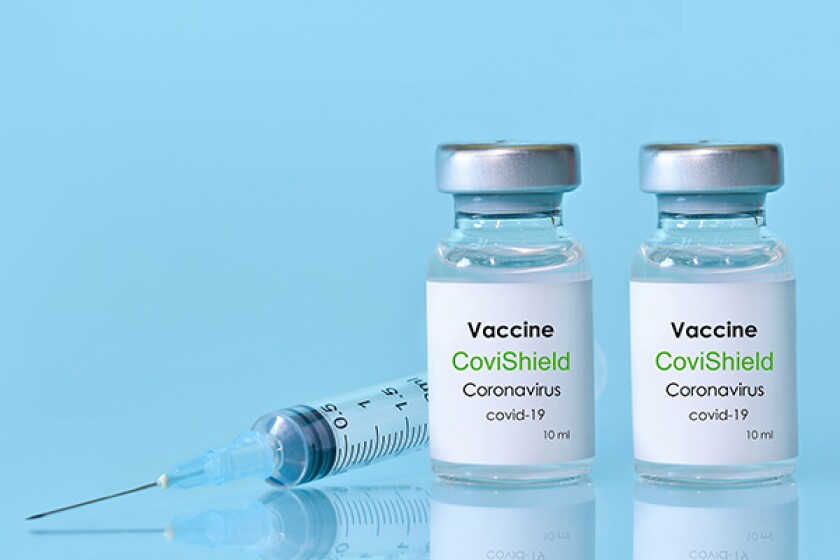The world has been talking about COVID-19 more than anything else in the last two years. This word dominated our mind space as well as the internet space. Though it represents fear and isolation to the general-public; some businesses see it pointing towards a myriad of opportunities. Perhaps that is why, the fight for exclusivity over brands comprising the word 'COVID' has gained monumental momentum.
Intellectual property offices worldwide have been flooded with the applications for registration of COVID formative marks. Some companies are going for defensive registrations and some are putting such brands to actual use. Many matters involving such marks have escalated to litigation too.
|
|
“IP offices worldwide have been flooded with applications for registration of COVID formative marks.” |
|
|
The popular mark 'Covishield' also found itself in troubled waters before the vaccine reached the masses in India. The Serum Institute, which produces and sells vaccine under this mark, faced a passing off action over it from Cutis Biotech, a Maharashtra based pharmaceutical product sales company, which moved to Bombay High Court in an appeal under the District Court's order rejecting its application for interim injunction. The appellate court upheld the order and denied the plea for stay.
As far as the factual matrix goes, Cutis had applied for registration of the mark 'Covishield' on April 29 2020; for "veterinary, Ayurvedic, allopathic, medicinal and pharmaceutical preparations and vitamins and dietary food supplements for humans and animals" and the Serum Institute filed its application on June 6 2020, for the vaccine.
Cutis claimed usage of the mark since May 30 2020. The evidence submitted for the purpose of corroboration included some tax audit documents and an invoice of May 2020 bearing a 'Covishield' entry.
The court rejected the very foundation of the Cutis case on the ground that the documentary evidence placed on record does not show prior use and "adequate details to establish a prima facie case" are also missing. The turnover of 16 lakh rupees (approximately $22,000) generated by Cutis by selling hand sanitisers and disinfectants at a time when such products saw heavy demand because of the pandemic was not found to be significant enough to support the claim of prior goodwill.
Interestingly, while evaluating the evidence of the Serum Institute, the court relied on the Institute's internal communication from March 2020 to procure packaging material under the trademark 'Covishield' carrying an endorsement of some third-party printing house to reach a finding that the Serum Institute is the prior adopter and user.
The court further noted that the "Serum Institute had issued a statement in March 2020 they are investing around USD 100 million on the COVID-19 vaccine. Another statement was issued in April 2020 that Serum Institute plans to produce a Coronavirus vaccine in collaboration with Astra Zeneca. The trial of the Oxford Coronavirus vaccine commenced around April 23 2020. The Union Health Minister further made a statement on April 25 2020 in respect trial of Serum Institute. On May 3 2020, Serum Institute received virus seed, and cell bank from Oxford University and permission was granted by DCGI. Therefore, on June 6 2020, when Serum Institute applied for registration of 'Covishield', it was widely known in the media".
Continuity in usage was found in the permissions/licenses obtained from the government to manufacture the vaccine and clinical trials undertaken by the Serum Institute at the development stage.
|
|
“The court rejected the Cutis case because documentary evidence placed on record did not show prior use.” |
|
|
The court held that "these events form a chain of seamless activity for the development of the vaccine using the mark". The following paragraph of the order is relevant in this context, "we find that Serum Institute had coined the word 'Covishield' and took substantial steps towards its development and manufacture. Thus, there is adequate and convincing material on record to demonstrate the prior adoption of the mark by Serum Institute. There is no perversity in the finding that Cutis Biotech cannot claim to be a prior user of 'Covishield'".
Cutis claim lost base, when it failed to establish prior goodwill, however, the court went on to address the question of possible misrepresentation to the public and found that the confusion is wholly improbable because the manner of administration of the underlying goods as well as their trade channels are different.
The following paragraph of the order merits attention – "The vaccine 'Covishield' produced by Serum Institute is not available across the counter. The vaccine will be administered through Government agencies. The buyer of the product 'Covishield' of Serum Institute is the Government of India. The administration of the vaccine is through an injection. The sale of disinfectant or hand sanitiser, though it may relate to the same field, that is, health care products, cannot be said to cause confusion in the mind of average consumers. The administration of vaccine through an injection is well known. It will be too farfetched to hold that there will be confusion in the average consumers' minds between the use of a trademark in a Government administered vaccine at designated places and over the counter sanitiser products".
Moving on to the third element of classic trinity test of passing off, i.e. damage (actual or probable), court held that "Without goodwill and the prior user shown in the first place, the loss of future sale or potential injury cannot be a standalone factor in this case, assuming it is a factor available in law".
Bad faith was also attributed to Cutis in light of the fact that after the Ministry of Health published the COVID-19 procedure on December 10 2020 referring to the 'Covishield' vaccine of the Serum Institute and after the passing off suit was filed against Cutis on December 11 2020; they filed another application on December 12 2020 for the registration of trademark 'Covishield' in Class-5 for vaccines.
Given that large scale investments had been made by the Serum Institute, the court concluded the balance of convenience in the Serum Institute's favour. Further, considering the present circumstances, a stay order against the Serum Institute would have had far reaching consequences and court took the public interest aspect into consideration while passing the order.
The court observed that "A temporary injunction directing Serum Institute to discontinue the use of mark 'Covishield' for its vaccine will cause confusion and disruption in the Vaccine administration program of the State. In this case, thus, the grant of an injunction would have large scale ramifications traversing beyond the parties to the suit."
The following elements cumulatively worked against Cutis and gave life to Serum's Covishield:
The miniscule business and turnover of Cutis;
Insufficient evidence showing significant prior goodwill;
The difference in nature of the underlying goods ruling out the likelihood of confusion, bad faith indications; and
Possible public interest impact of an injunction due to disruption of the vaccine administration programme.

Manisha Singh
Managing partner
LexOrbis
T: +91 11 2371 6565
Manisha Singh is a founder and the managing partner of LexOrbis. She oversees and supervises all practice groups at the firm.
Manisha is known and respected for her deep expertise on prosecution and enforcement of all forms of IP rights and for strategising and managing global patents, trademarks and designs portfolios of large global and domestic companies. Her keen interest in using and deploying latest technology tools and processes has immensely helped the firm to develop efficient IP service delivery models and to provide best-in-the-class services.
Manisha studied law at the Campus Law Centre of Delhi University of Delhi after completing her masters' degree in economics from Patna.

Simrat Kaur
Associate partner
LexOrbis
T: +91 11 2371 6565
E: simrat@lexorbis.com Simrat Kaur is an associate partner at LexOrbis. She has experience in completing IP advisory, prosecution, litigation and policy-related work for corporates, industry associations and individuals. With international experience across India and Singapore, she has also regularly written on pressing IP issues for publications.
Simrat has catered to a wide range of domestic and foreign clients including in the entertainment, technology, education, and automobile industry.
Simrat holds a bachelor's degree from the Rajiv Gandhi National University of Law in Punjab, and a LLM from the National University of Singapore.













